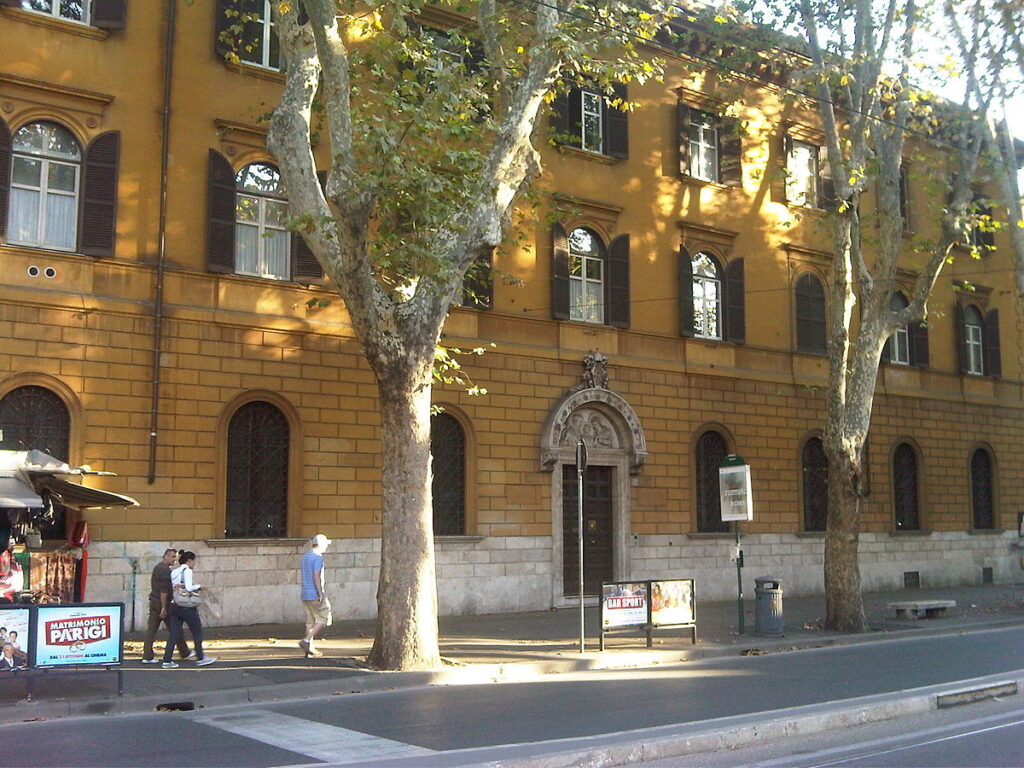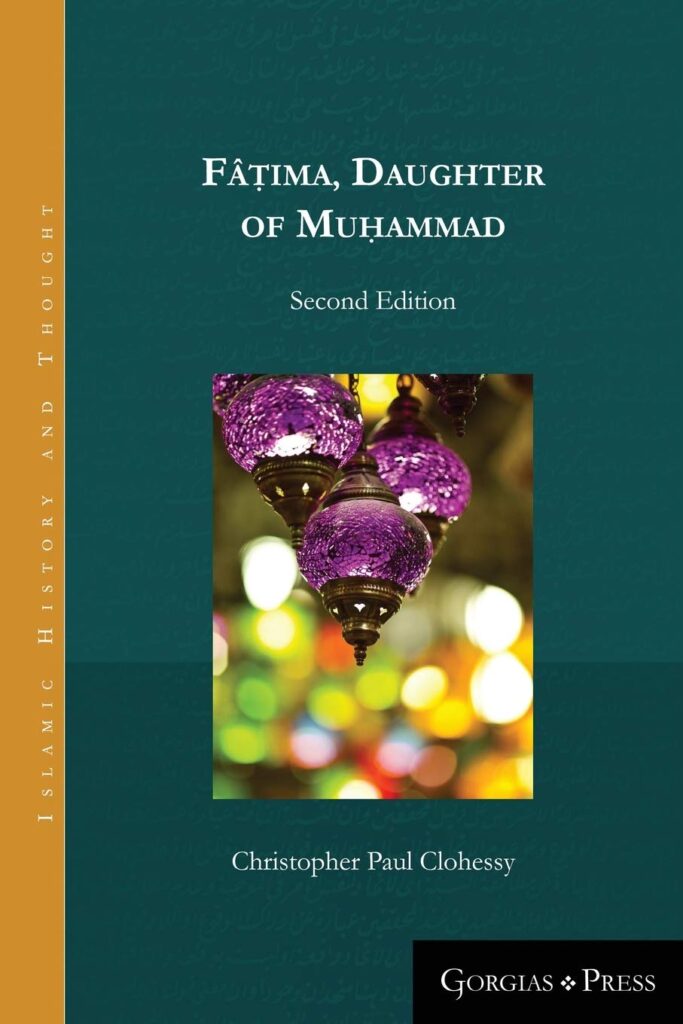
1. You are a priest from Cape Town, and you are a lecturer at the Pontifical Institute for Arabic and Islamic Studies. How did a priest from Cape Town end up teaching Arabic and Islamic studies of all things, in Rome?
Years ago, while working as a parish priest in one of the Cape Flats parishes, I suggested to the Archbishop that somebody ought to make an academic study of Islam. This was, in part, because of the numbers of those practicing Islamic faith in those parts of the Cape, but also because there were so many families in the parish in which a son or daughter had, for one or more reasons, converted to Islam. They did not cease to be members of the own families and therefore, by extension, the parish community. I thought it would be important to possess enough knowledge to stand with reverence before the life choices they had made, without necessarily agreeing with them, and to be able to talk about faith and God with them in a way that was respectful and coherent. Some months later, the Archbishop met up by chance in Rome with some of the curial officials attached to the Pontifical Council for Interreligious Dialogue, who asked when a South African would be sent to study Islam. So, I ended up doing a Masters and then a PhD, studying between the Cairo Institute run by the Comboni Fathers, and the Rome-based Pontifical Institute for Arabic and Islamic Studies, under the direction of the Missionaries of Africa (who used to be known as the White Fathers). I am now on the teaching staff of the same Institute in Rome.
2. Most Catholic don’t even imagine that the Church would even think about studying, let alone teaching about Islam. What is the importance of having the Pontifical Institute related to Islamic and Arabic studies instead of just letting people who are curious about Islam and Arab world just do their own private enquiry?

The Institute was initiated by the White Fathers in Tunisia, with the intention of teaching the Arabic language and Islamic theology to their own missionaries working in Islamic territories. Little by little, other Orders and Congregations expressed an interest in sending students and the Institute grew rapidly. After Tunisian independence, the Institute was forced to move to Rome, where it has been ever since. It’s primary role remains unchanged: to offer a full course of Arabic and Islamic Studies to those who are working in Islamic territories, and to promote an educated and harmonious dialogue between Catholics and Muslims. Currently, therefore, our students are a mix of priests, religious, and laity, all of whom are studying Arabic and Islamic for one of the above purposes. As such, this college has already produced at least seven martyrs, all of them now beatified.
3. How does teaching Islamic and Arabic Studies contribute to Inter-religious dialogue?
Teaching Islamic and Arabic Studies contributes to interreligious relations in a simple way: any sort of dialogue, whether it be interreligious or intercultural, needs to be an educated dialogue. The two parties need to be thoroughly versed not only in their own religion and culture, but in the religion and culture of their partner in dialogue. In this, the Catholic Church is light years ahead, not only of any other Christian denominations involved in this field, but also of Islam, which has very few centres for the study of Christian culture and religion.
4. It is one thing being a lecturer and it is another being a writer. Your books have received very good reviews. Did you always have the passion for writing?
I always found writing quite easy; it’s a hobby, really, something I keep on the burner to tinker with in free moments. My first book, on Muhammad’s daughter Fatima, is my PhD thesis. The second was the result of a ‘challenge’ the four priests living on the staff here set each other – that since Muslim scholars were not writing about their principal female figures, we would each take an important Muslim woman and produce a thorough, academic biography. I had no idea that they were joking, and so set about writing and publishing a book on Zaynab, the daughter of Fatima. My third book, being published this month, concerns the theme of dreams and angelic visitations in Islam, warning of a catastrophic event, and concerns the martyrdom of Fatima’s son al-Husayn at the Battle of Karbala in the year 680.
5. You have written books on Fatima, The daughter of Muhammad and Half of my Heart: The Narratives of Zaynab, Daughter of Ali. Why focus on Fatima and Zaynab, noting also that they are both women, instead of any other figures in Islam?
One of my consistent complaints has been that Islamic scholars neglect writing about the important female figures in Islam. This was one of the reasons why I chose to do my doctorate about Fatima – I was able to produce the first major work on her, in English, but based on Arabic sources. I have tried to do the same for Zaynab. Both women are iconic models for speaking the truth and standing for justice, and both can easily serve as paradigms for modern women and men who must face making even small moral choices each day, even though they may find this a great challenge.
6. In the Islamic or Arab world or religion is there a connection between Lady Fatima and Our Lady of Fatima?
No connection at all. The Portuguese town called Fatima was named after a woman named Fatima, the wife of a much later Caliph, and so has no real connection to Muhammad’s daughter, despite the insistence of some popular piety.
7. For your efforts you have recently won two awards. What are those awards and what is the significance of winning them and who gives these awards?
I was surprised and delighted by both awards. The first one, which I discovered purely by accident, was that my book on Zaynab was nominated by the BookAuthority, in conjunction with Forbes and CNN, as one of the 95 most important works on Islamic history ever written! I still look askance at this, because I know some of the works that are not on the list! The second award came to my attention through an email from Iran on a Sunday morning, and which I thought might be a hoax. It announced that I was one of the recipients of the 28th World Book Award of the Islamic Republic of Iran. This award was won some years ago by another professor on our staff, and is prestigious, so again, I am delighted if not somewhat surprised
8. When writing your books did you have a specific audience in mind or you wrote for anyone who cared to read?
I was writing primarily to introduce Islamic historical themes and bibliography to an English-speaking, non-Muslim readership. In particular, I hoped to offer them a glimpse into the lives and personalities of some of Islam’s important women
9. With the knowledge that you have of the Islamic world and religion how have they received the Pope’s latest Encyclical “Fratelli Tutti”? And how does Fratelli Tutti contribute to the work of the Pontifical Institute for Arabic and Islamic studies?
In all honesty, I am not much of a fan either of the Encyclical Fratelli Tutti or of the Document on Human Fraternity for World Peace and Living Together, nor am I convinced that either has made any substantial impact on the Islamic world. Both texts disturb me slightly by their lack of linguistic precision and clear theology. Fratelli Tutti begins with an account of St. Francis’ famous visit to the Sultan. This is almost certainly a fable and not an historical event – in fact, in the manner of its telling, it is precisely the opposite of all the guidelines we lay down for a healthy dialogue (Francis harangued the Sultan, scarcely letting him get a word in and insisting that he convert, and ended the day on a silly challenge to a trial by fire). Furthermore, the use of the word ‘brotherhood’ is problematic in that this is a crucial concept which carries a different theology and has vastly different parameters in the Islamic world than it does in the Christian world. The Document on Human Fraternity for World Peace and Living Together was couched almost entirely in Islamic phraseology, and the name of Christ does not occur; and again, in Islam, the concept of ‘fraternity’ does not carry the same meaning as it does on the Christian world. In the final analysis, aside from the lack of precision and clear theological vision, the impact of both documents will be seen (and must be seen) in whatever fruits they bear. In particular, freedom of worship, which is the most fundamental human freedom (as Pope Emeritus Benedict notes) because religion has been innate in humanity from the beginning) and the freedom to convert from one religion to another. These two fundamental rights are denied in a number of countries, and their being granted would be the chief and most important impact of Pope Francis’ two texts.



0 Comments